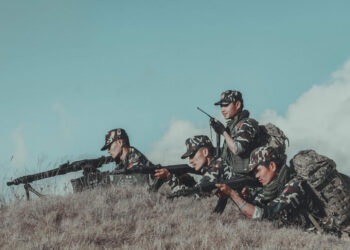CHIANG MAI, Thailand – Prior to International Women’s Day (IWD) on March 8, women’s rights activists in Myanmar are taking part in #RespectHer and other social media campaigns in support of the global movement for gender equality. This year’s global theme for IWD is “Press for Change”, aimed at accelerating the process of achieving gender parity.
Social media users are sharing posts with the hashtags #RespectHer and #ItsnotOK to express their support for efforts to end domestic violence and all forms of harassment against women. They are posting their own experiences and those of others to bring attention to these issues.
“This [harassment] should not be happening in society, and we need to highlight the fact that seemingly minor acts can have a strong impact on women. It is not OK,” said Sandi Sein Thein, a member of the #RespectHer campaign who is responsible for online activities.
“When we started brainstorming on how to raise awareness, we wanted to start with small but neglected facts; thus the #RespectHer campaign was initiated,” she explained.
The campaign was started last month by the Myanmar Art Social Project with help from various individuals and the United Nations Population Fund (UNFPA).
The RespectHer social media page has amassed over 3,400 followers Women and some men are posting photos tagged #ItsnotOK and #RespectHer and sharing their experiences.
Over the weekend, the campaigners also engaged in activities to raise awareness in the community, especially in crowded parks or on public buses. They used various forms of communication, including performance, poetry recital and roleplaying with commuters.
Sandi Sein Thein added, “When we say we are not comfortable with being teased by men over the shape of our bodies or how we move, people think we are overreacting, because this is ‘normal’ behavior. We forget that it is wrong. Any girl or woman has the right to feel safe while walking along the street.”
The campaigner added that at the very least she hoped their efforts could bring the message to society that it is not normal or acceptable for men to tease or harrass women on buses or to engage in domestic violence.
“In Myanmar, there is a high social acceptance of violence against women. This is reflected in the normalization of domestic violence. For this reason, domestic violence in particular is largely regarded as a private matter: Marital rape is not a crime. For these reasons, Myanmar needs a law that criminalizes all forms of violence against women, and a strong justice system to underpin it,” said Alexandra Robinson, a UNFPA specialist on gender-based violence.
She told The Irrawaddy that the agency is supporting the campaign “to amplify” the voices of the Myanmar people, who “are taking to the streets and to social media to call for zero tolerance of sexual assault and harassment, and indeed all forms of gender-based violence.”
Such campaigns are still needed, as victim-blaming is entrenched in Myanmar’s culture, with the target usually being women, said Mi Kun Chan Nom, the vice chair of the Mon Women’s Organization. MWO works for the advancement, empowerment and protection of women in Mon State. Mi Kun Chan Nom’s MWO is also a member of the Alliance for Gender Inclusion in the Peace Process (AGIPP).
“In cases of gender-based violence, women are blamed for the way they dress, while the perpetrators escape blame. Additionally, women leaders are held to a higher standard [than male leaders],” Mi Kun Chan Non said.
Robinson said that the more women and men who join and support the campaign, the better. “The campaign is a platform for a public dialogue across Myanmar, with a view to creating a critical mass of support for social change,” she said. “It is time for women and men to work together for lasting change.”
Women’s organizations and women’s rights defenders will take part in the IWD 2018 event in Yangon’s Maha Bandula Park on March 10.

















